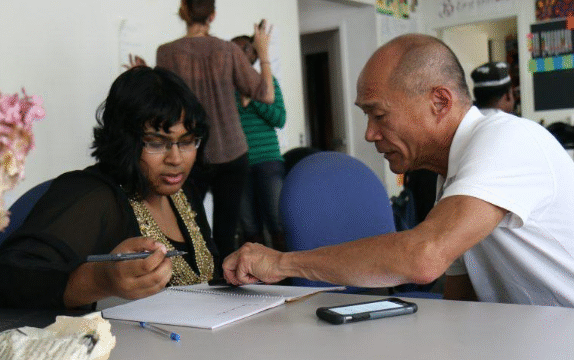Earning a learning certificate can be an exciting step toward
advancing your career, gaining new skills, or proving your
expertise in a subject. But before you get there, you need
to prepare for the exam that comes with it. While the thought of sitting for a test may feel overwhelming, the good news is that with the right strategies, you can study effectively and approach the exam with confidence.
Preparing for a learning certificate exam requires more than just reading through textbooks or course materials. It involves creating a smart plan, managing your time, practicing with intention, and building the right mindset. Below, let’s explore practical ways you can study for your exam so that you set yourself up for success.
Start with a Study Plan
Every successful study journey begins with a plan. Instead of jumping into the material without direction, map out how much time you have before the exam and break down the topics you need to cover. A calendar or notebook can help you visualize your schedule. For example, if you have a month to study, you can dedicate each week to specific sections and leave the last few days for review. Having a structured plan keeps you from cramming at the last minute, which is stressful and rarely effective.
Understand the Exam Format
Many learners make the mistake of studying without first understanding how the exam works. Before you dive deep into the content, take time to research the format of the test. Is it multiple choice, essay-based, or practical? Will there be case studies or simulations? Knowing this helps you prepare in a way that matches the assessment style. For instance, if it is multiple choice, you can practice recognizing the best option under time pressure. If it includes case studies, you can practice applying concepts to real-life scenarios.
Organize Study Materials
Keeping your resources in order makes a big difference. Collect your textbooks, online modules, notes, and any practice guides in one place. Organize digital files into folders and keep your physical notes tidy so you can easily find what you need. When everything is within reach, you spend more time studying and less time searching for materials.
Break Down Information into Chunks
Trying to memorize entire chapters in one sitting can feel impossible. Instead, break down the material into smaller sections. Focus on learning one concept at a time and gradually build up your knowledge. This method, often called chunking, helps your brain absorb information more effectively. After studying a section, summarize it in your own words. This not only reinforces your understanding but also makes it easier to recall during the exam.
Practice with Sample Questions
Practice is one of the most powerful tools in exam preparation. Many certificate programs provide sample questions or past exams. Working through these will help you become familiar with the style of questions and the level of detail required in your answers. Even if you don’t have access to official practice tests, you can create your own by writing down potential questions based on your study materials. Practicing under timed conditions can also build your ability to think quickly and manage the exam environment.
Use Active Learning Techniques
Passive reading may not be enough to fully prepare you. Active learning methods, such as flashcards, diagrams, or teaching the material to someone else, help deepen your understanding. For example, explaining a concept to a friend or even speaking it aloud to yourself forces you to process the information more thoroughly. Highlighting key points, making charts, or drawing mind maps are also great ways to engage your brain in multiple ways.
Stay Consistent with Short Study Sessions
Many people believe long study hours are the key to success, but consistency often matters more. Instead of marathon sessions that can lead to burnout, try shorter, focused periods of study spread across days or weeks. The popular “Pomodoro Technique,” where you study for 25 minutes and then take a short break, is one way to stay productive and refreshed.
Take Care of Your Well-being
Your brain works best when your body is well taken care of. Getting enough sleep, eating nutritious foods, and staying hydrated are all important parts of effective studying. Exercise also helps improve focus and memory, even if it’s just a quick walk between study sessions. When you feel good physically, it’s much easier to concentrate and retain information.
Stay Positive and Manage Stress
It’s normal to feel nervous about an exam, but stress can interfere with your performance. Developing a positive mindset will help you approach the test with more confidence. Use relaxation techniques like deep breathing or meditation to calm your mind. Remind yourself that exams are not about perfection but about showing what you know. If you put in consistent effort, you are already giving yourself the best chance to succeed.
Review and Revise Regularly
Don’t wait until the night before the exam to review everything. Instead, make reviewing a regular part of your study process. Go back to earlier topics every few days so they stay fresh in your memory. Writing quick summaries or reviewing flashcards can make the process less overwhelming. On the day before the exam, focus more on revisiting key concepts rather than trying to learn new material.
Simulate the Exam Environment
One of the best ways to prepare is to practice as if you are taking the real exam. Set aside time to sit in a quiet space, avoid distractions, and answer questions within a strict time limit. This exercise helps you build stamina and reduces surprises on exam day. By simulating the test conditions, you also train your brain to stay focused for the actual event.
Form a Study Group if Possible
Sometimes studying with others can boost your motivation and understanding. A study group allows you to share knowledge, quiz each other, and discuss difficult concepts. Teaching someone else a topic you understand can reinforce your own learning, while hearing explanations from peers can give you a new perspective. Just be careful to stay focused and not let group sessions turn into social time.
Celebrate Your Progress
Studying for a certificate exam can feel like a long journey, but acknowledging your progress along the way makes it easier to stay motivated. Every chapter you finish, every practice test you complete, and every concept you finally understand is a step forward. Reward yourself with small breaks or treats to keep your energy up.
Final Thoughts
Preparing for a learning certificate exam doesn’t have to be overwhelming. With a clear study plan, effective techniques, and a healthy mindset, you can approach the exam feeling prepared and confident. Remember that the process is as important as the result, because the knowledge you gain will stay with you beyond the test.
Your certificate exam is not just about passing—it is about proving to yourself that you can set a goal, work hard, and achieve it. By following the steps above, you’ll not only increase your chances of success but also make the journey a positive and rewarding experience.






